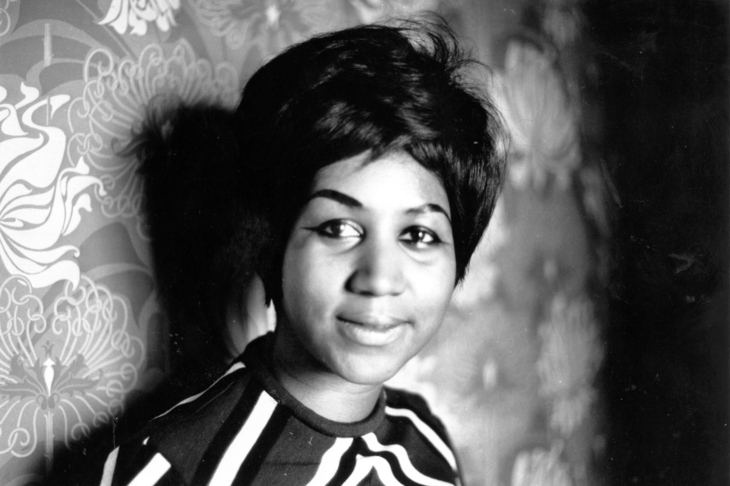Aretha—the voice was so distinctive that her surname seemed superfluous—was simply the finest popular singer of her generation. Unlike every other pop star of the Sixties and Seventies, she would have been among the finest of the previous generations, too. Her only peer for placing the note just where it hurt was Billie Holiday, but Aretha also had the power of Big Mama Thornton. Her only peer in sheer swinging joy was Ella Fitzgerald, but Aretha was stronger on the high notes.
She was born in 1942, and into the business of soul. Her father, C.L. Franklin, was the minister of New Bethel Baptist Church in Detroit, a philanderer with a ‘million-dollar voice’. Her mother Barbara was a pianist and singer; Aretha and her three siblings learned to sing in the choir as their parents’ marriage disintegrated. In 1952, Aretha’s mother died, and Aretha made her solo debut in her father’s church. At fourteen, she went on the road with a ‘gospel caravan’ tour, along with Sam Cooke. At eighteen, C.L. having assented to her wish to follow Cooke into secular music, she was signed to Columbia Records.
Columbia struggled to sell her as a supper-club singer, but the albums that Franklin recorded for the label between 1961 and 1966 are wonderful, a bluesy coda to the tradition of show tunes, standards and big band blues. But they only hint at her unique ability. In late 1966, Franklin moved to Atlantic Records, and started recording with the house band at Fame Studios in Muscle Shoals, Alabama. The music that ensued is without parallel: ‘Respect’, ‘Say A Little Prayer’, ‘(You Make Me Feel Like A) Natural Woman’, ‘Chain Of Fools’, ‘Think’, ‘Spanish Harlem’, Daydreaming’, Rock Steady’.
The crowning glory was her 1971 gospel album, Amazing Grace, with full choir, a rhythm section of Bernard ‘Pretty’ Purdie (drums), Chuck Rianey (bass) and Cornell Dupree (guitar), a delirious audience at the New Temple Missionary Baptist Church in Los Angeles, and Aretha on incandescent form. There never was a pop record like it. Perhaps it is not a pop record at all, but a spiritual testimony of black American music; and perhaps that is what Soul music was, when it stayed close to the church.
Aretha never lost her voice. But the public lost its taste. Her 1973 album Hey Now Hey, recorded with Quincy Jones, was a flop, despite superb songs like the ballad ‘Mr. Spain’ and the soul rocker ‘Sister From Texas’. The clue perhaps is in the choice of Leonard Bernstein’s ‘Somewhere’. Times had changed sharply in the Sixties, but Franklin had not sold out. She never stopped working, but there was a long, unfashionable decade between the mid-Seventies and the mid-Eighties. Her ‘revival’—really, a return to commercial respectability—came through collaborations with vastly inferior white singers like Annie Lennox and George Michael.
I saw her live about ten years ago. The audience was mostly black. The band, mostly black men of pensionable age, shuffled on in velvet tuxedos and delivered a warm-up of Basie swing, as though Aretha was still on Columbia. When Aretha waddled on in a spectacular outfit and squeezed out a high note, everyone in the theater jumped to their feet at the same time and cried out. She rationed her energy—she was heavy, and had lost some puff to cigarettes—but every now and then, she would hit a high note, or turn a phrase, to the same electrifying effect. I’ve heard many singers, but only Aretha had the soul power that summon the spirit at will. The Queen is dead, and we shall never hear her like again.







Comments